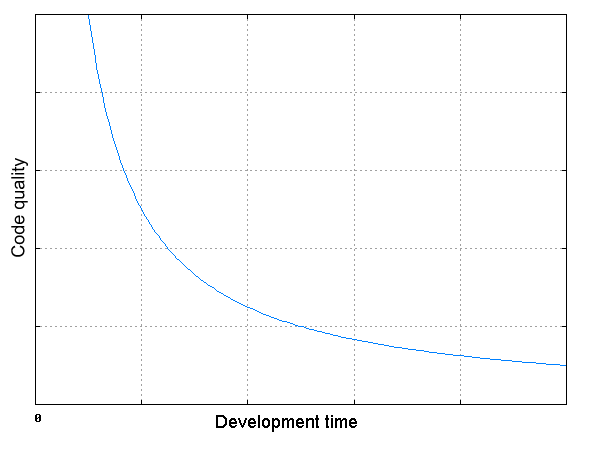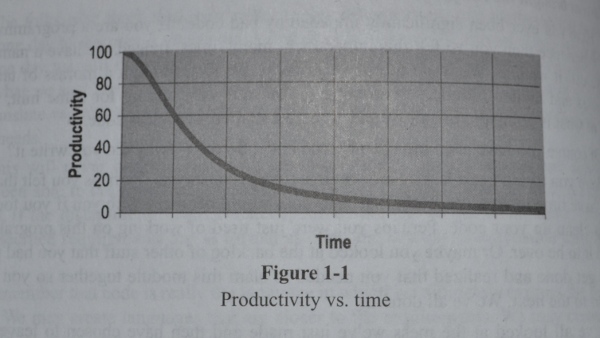Code quality and development time
I’ve started writing this blog about an year ago.
A more delicate issue, and often less discussed by project managers is code quality vs. development time.
Code quality is a pressing issue for programmers, an issue that they confront almost daily.
In what degree is that relevant from the economical point of view?
I’ve created a chart trying to better illustrate this issue:
This graph was made about an year ago, when I’ve started writing this post and I wasn’t too sure about it.
Recently I’ve started reading “Clean Code” by Robert C. Martin. When I was reading the first chapter, on my way to work I’ve got to “The Cost of Owning a Mess”. Unlike me analyzing “Code quality” vs “Development time”, in the book there is a graph for “Productivity vs. time”:
I was very excited to find this similar graph. In other words, if is code of good quality, development time will be lower. As the more “unorganized” the code, the more development time is needed.
A fairly popular method of resolving this time issue is rewriting the entire platform. Rewriting a platform may not be a very good choice because of the costs. In the book there is an extra argument, if the two platforms are build in parallel there is a posibility that there are never going to intersect, so the new platform will never get in production. I’ve nerver seen a plan so radical in practice without renouncing to the old project, but a case that I’ve came across in several occasions is when the platform is rewritten end even if the start is very promising and everything is aligned with the requirements, and the old issues are approached in a constructive matter, a time comes when compromises start to appear. Usually an achitectural compromise never comes alone, once you realize that you can make compromises, and the team doesn’t have remorse about them is the first sign that the project will get on the wrong path again.
A partial solution I think is appointing an architect who can set the development path, a person that can manage the project and don’t let it get out of control.
Another perspective is that the older the bug the harder it is to solve. In fact, code quality is a more relevant factor. The better a piece of code is written the easier it is to understand and modify it. As a direct action it is preferred to have a “coding standard”.
The problem with “coding standard” is that not every programmer is ready to embrace it. Usually senior programmers have the tendency to do things as they are used. No standard is perfect, but even an imperfect one if it is implemented in the entire project, the code quality is considerably better because you raspect an approach, you don’t have to guess it.
The moral: take care of the code and you’ll have more spare time, after all life is short, doesn’t worth spending it doing debugging. 🙂

